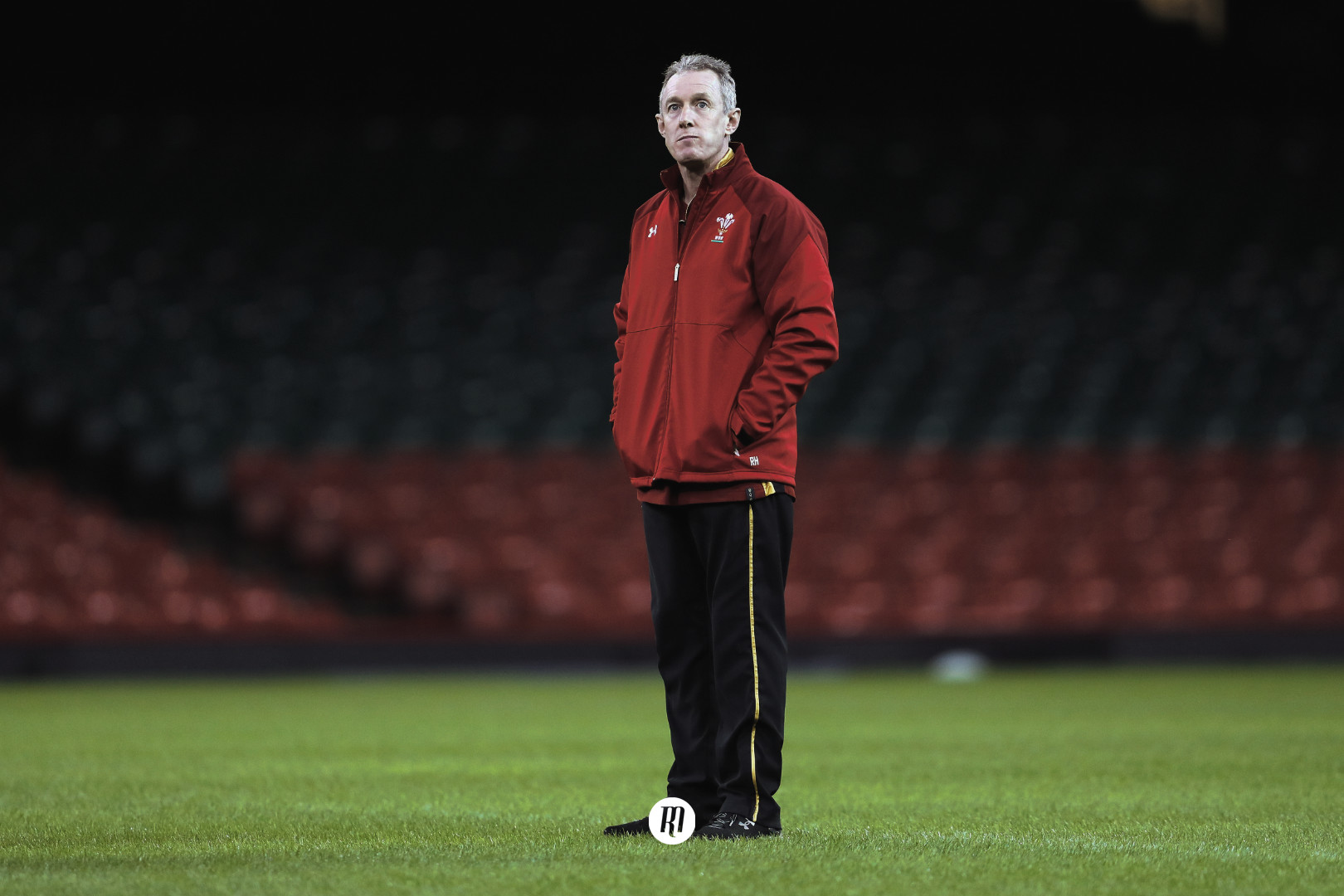The Rob Howley Case: Explained
With the Rugby World Cup a matter of hours away, the Rob Howley betting “scandal” has sent shockwaves across the rugby world.
Ben Cisneros is the author of the 'Rugby And The Law Blog'. Discussion of Disciplinary, Concussion, Doping, Commercial, Governance issues, and much more, Ben puts his legal brain to the test in a sporting envireoment, making sense of some of the most baffling issues within the game.
It was revealed on Tuesday the 17th of September 2019 that Wales’ attack coach, Howley, had been sent home from Japan, and it has since been confirmed that he is under investigation by the Wales Rugby Union (the “WRU”) for potential breaches of World Rugby’s betting regulations.
At this early stage it is important to emphasise that the full circumstances of the allegations are not known and that it would be improper to speculate as to the precise facts. However, it has been reported that the WRU were tipped off about the potential breaches by a betting firm’s integrity unit. It is also important to highlight that, given the addiction issues that often surround gambling, there should be an element of concern for Howley’s welfare – as reflected in the WRU communications.
This article will consider the applicable rules and regulations, and the disciplinary process that may follow. It will also reflect on the 2015 case of RFU v Phillip Blake and explain the applicable sanctioning framework.
The applicable rules can be found in World Rugby Regulation 6 (Anti-Corruption and Betting), which is incorporated into the WRU Code of Conduct for Coaches, Team Managers and Club Officials by Rule 2.1(e).
JURISDICTION
The first issue is that of jurisdiction: is it the WRU or World Rugby who have responsibility for these proceedings?
The applicable rules are those of World Rugby, but these are (as noted above) expressly incorporated into the WRU’s own Code of Conduct – breaches of which are enforceable by the WRU itself. There appear to be concurrent jurisdictions.
However, under World Rugby Regulation 6.7.1:
Any breach, allegation or suspicion of a breach of these Anti-Corruption Regulations shall be referred in the first instance to the [World Rugby] Anti-Corruption Officer for investigation…
Nonetheless, under Regulation 6.7.9, the Anti-Corruption Officer may “refer the conduct of an investigation(s) and/or a hearing(s)…to the relevant Union”. Essentially, if World Rugby and the Union agree, the Union may take responsibility for investigating and conducting a hearing in relation to the alleged breaches. In such circumstances, World Rugby will be a “notice party” to such proceedings. This appears to be what has happened in the Howley case.
However, Regulation 6.12.1 provides that:
a Union may request World Rugby to assume the conduct of an investigation and/or hearing under these Anti-Corruption Regulations (following a referral pursuant to Regulation 6.7.9) and/or its anti-corruption regulations where there is or appears to be an international element…and/or otherwise where appropriate.
It would thus be open for the WRU to remit the matter to World Rugby for resolution. As Howley is an international coach, there would presumably be “an international element”.
WORLD RUGBY PROHIBITED BETTING
Under World Rugby Regulation 6.3, there are various types of “Anti-Corruption Breaches”. These include: “Prohibited Betting” (6.3.1), “Corruption related to Fixing” (6.3.2), “Misuse of Inside Information” (6.3.3), and “General corruption offences” (6.3.4). Each of these offences is of strict liability:
it is not necessary that intent, fault, negligence and/or knowing commission of an Anti-Corruption Breach on the Connected Person’s part be demonstrated in order to establish that an Anti-Corruption Breach has been committed. (6.3)
The WRU have confirmed that its investigation is focused on “betting on rugby union”. As such, this article will focus predominantly on “Prohibited Betting” (Regulation 6.3.1).
However, “Misuse of Inside Information” (Regulation 6.3.3) may also be relevant, so it deserves brief mention. This breach will be committed if a Connected Person (see below) directly or indirectly uses, or discloses to another, non-public information for the purpose of betting. Such information might include (Regulation 6.2) selection, injuries, tactics or any other information relating to any aspect of a match or tournament.
Nonetheless, Regulation 6.3.1 can be broken down into four (relevant) specific breaches. Each shall be considered in turn.
1. Betting by a Connected Person on a Connected Event
Firstly, under 6.3.1(a):
(a) No Connected Person shall, directly or indirectly, Bet and/or Attempt to Bet on the outcome or any aspect of any Connected Event and/or receive and/or Attempt to receive part or all of the proceeds of any such Bet and/or any other Benefit in relation to a Bet.
The term “Connected Person” is defined very broadly in Regulation 6.2, and includes “any coach, trainer, selector…engaged in relation to the Game by a Union or its National Representative Team”. Howley would thus be a Connected Person.
A “Connected Event” is:
An Event with which a Connected Person and/or the National Representative Team and/or Union…is involved with, connected to or engaged with.
An “Event” is defined as a “Match, tournament, Series of Matches, league, and/or competition at any level of the Game”.
As such, if Howley has bet on any aspect of (for example) the Six Nations, World Cup warm-ups, or the Rugby World Cup itself, he will have committed this offence, as these are Events which Wales have been involved with or connected to.
2. Soliciting by a Connected Person of Betting on a Connected Event
Secondly, under 6.3.1(b):
(b) No Connected Person shall and/or shall Attempt, directly or indirectly, to solicit, offer, induce, entice, instruct, persuade, encourage, agree with and/or facilitate any other party to Bet and/or Attempt to Bet on the outcome or any aspect of any Connected Event.
This covers situations akin to those caught by 6.3.1(a), but where the Connected Person has got someone else to place the bet in question.
3. Betting by a Contract Player or Contract Player Support Personnel on an Event
While the first two offences are in respect of “Connected Persons” and “Connected Events”, the second two offences relate to any betting by anyone involved in professional rugby. The distinction between the two pairs of offences is relevant to the applicable sanction. As such, 6.3.1(c) states that:
(c) No Contract Player or Contract Player Support Personnel shall, directly or indirectly, Bet and/or Attempt to Bet on the outcome and/or any aspect of any Event and/or receive and/or Attempt to receive part or all of the proceeds of any such Bet and/or any other Benefit in relation to a Bet.
“Contract Player Support Personnel” is defined in 6.2 as:
A Connected Person who is involved with and/or engaged by a Contract Player, a Club, Rugby Body, team…and shall include the…personnel of Unions, Clubs and Rugby Bodies which engage Contract Players…
A “Contract Player” is defined in World Rugby Regulation 4.5.7 as registered players who are currently receiving, or who have received payment in respect of their participation in rugby.
Howley will therefore also be deemed “Contract Player Support Personnel”, as he is involved with the Welsh rugby “team” and is a “Connected Person”. As such, Howley is bound by 6.3.1(c). If he has placed a bet on “any Event” – i.e. any match at any level of the game – he will have committed a breach of this Regulation.
4. Soliciting by a Contract Player or Contract Player Support Personnel of Betting on an Event
As above, the final offence mirrors 6.3.1(c):
(d) No Contract Player or Contract Player Support Personnel shall and/or shall Attempt, directly or indirectly, to solicit, induce, entice, instruct, persuade, encourage, agree with and/or facilitate any other person to Bet and/or Attempt to Bet on the outcome or any aspect of any Event.
Thus, if Howley has solicited, encouraged or facilitated (etc.) betting on any rugby match, he will be liable under this provision.
DISCIPLINARY PROCESS
If the investigations find that Howley has a “case to answer” (Regulation 6.7.5), he will be charged under the above Regulations. He may then be provisionally suspended pending the final determination of the case – though he would have the right to contest the imposition of such a suspension (6.8.2).
Howley will then have the right to a hearing in front of an independent judicial panel (6.7.7). He may admit or deny the allegations but, if he admits the charge, may nonetheless request a hearing to make arguments as to the appropriate sanction.
The independent judicial panel will then hear the case and make a decision as to whether the offences alleged have been committed and, if so, what the appropriate sanction should be. The standard of proof in such cases is the “balance of probabilities” (Regulation 6.6). It is worth noting that, as sports lawyer Kevin Carpenter has previously pointed out, this standard contrasts the standard recommended by the Court of Arbitration for Sport for corruption offences: the hybrid civil-criminal standard of “comfortable satisfaction” (Kevin Sammut v UEFA).
SANCTIONING FRAMEWORK
World Rugby Regulation 6.10 sets out the sanctioning framework. The range of sanctions applicable to Prohibited Betting is (6.10.2) as follows:
Minimum:
(i) reprimand and/or warning where single Bet not placed on a Connected Event; or
(ii) 6-month Suspension where Bet(s) placed, directly or indirectly, on a Connected Event
Maximum: 5-year Suspension
The Judicial Committee or Judicial Officer shall have the discretion to impose a fine on the Connected Person… (Emphasis added)
The sanction may therefore vary depending on the Event the bet was placed upon, and also the “seriousness of the offence” (6.10.1), taking into account aggravating and mitigating factors.
Aggravating factors include (6.10.3): a high degree of fault, previous anti-corruption offences, whether the sums of money involved were substantial and whether the results of any Events could have been affected.
Mitigating factors include (6.10.4): a low degree of fault, prompt admission of culpability and/or remorse, a good disciplinary record/good character and whether the offence had no effect on any Events.
The only previous case of note in this area is the RFU v Phillip Blake decision (2015). In November 2014, Blake was working as Leicester Tigers’ defence coach when he placed four separate bets on two occasions on matches involving Leicester. He was charged under RFU Regulation 17 (which mirrors World Rugby Regulation 6) with the offences of ‘Betting by a Connected Person on a Connected Event’ and ‘Betting by Contract Player Support Personnel on an Event’.
Blake admitted the charges and was handed a six-month suspension along with a £699 fine to deprive him of the profit he made. He also had to pay the costs of the hearing. The panel in the case considered this to be a “proportionate” sanction, particularly owing to his immediate admission of guilt, genuine contrition and regret, exemplary disciplinary record and the fact that the breaches did not have the potential to affect the results of either match.
It is impossible at this time to say how Howley’s case would be decided – if it is found that he has a case to answer – but the application of the rules in the Blake case may provide some guidance.
Finally, it is interesting to note that World Rugby Regulation 6.10.5(f) requires that anyone suspended under the Regulations must attend a World Rugby-approved anti-corruption education programme before their suspension can be considered to have expired.
THE PURPOSE OF WORLD RUGBY'S BETTING REGULATIONS
The detail and coverage of these Regulations is extensive, but some may wonder why betting by participants is restricted in the first place. As Carpenter has argued, the reason for this is principally perception. Sport’s stakeholders often do not see the difference between a participant merely betting and a participant fixing a match, leading to a perception that the sport’s integrity has been compromised – even if there is no fixing involved. Indeed, World Rugby identify “public confidence” as being a driving force behind Regulation 6 (6.1.3(b)).
Carpenter also suggests that it is a way of sports governing bodies fulfilling a moral duty by helping participants to avoid gambling problems, whilst it must also be true that outlawing betting makes it easier to convict those who have fixed matches where this is difficult to prove – they can still be charged with the lesser offence.
Lastly, this policy is in line with laws on “insider trading”. Though these laws – in the UK at least – apply only to the trading of shares and securities, the underlying principle is the same: that it is wrong/fraudulent to use private information to outwit the market. Though betting on sports in this way may not be criminal per se, there is a fine line, as it is a criminal offence under s.42(1) of the Gambling Act 2005 to cheat at gambling – see the Supreme Court decision in Ivey v Genting Casinos (2017). It is nevertheless contrary to the integrity of rugby.
Whether Howley is found to have committed a betting-related breach or not, the WRU and World Rugby have acted appropriately in the way that they have handled the matter so far. In order to preserve the integrity of the game we all love it is vital to take such allegations extremely seriously and to investigate thoroughly, whilst respecting the individual’s reputation – particularly under the microscope of a World Cup.

Filed under:
International, Rugby World Cup, Wales
Written by: Ben Cisneros
Follow: @@ben_cisneros · @therugbymag




